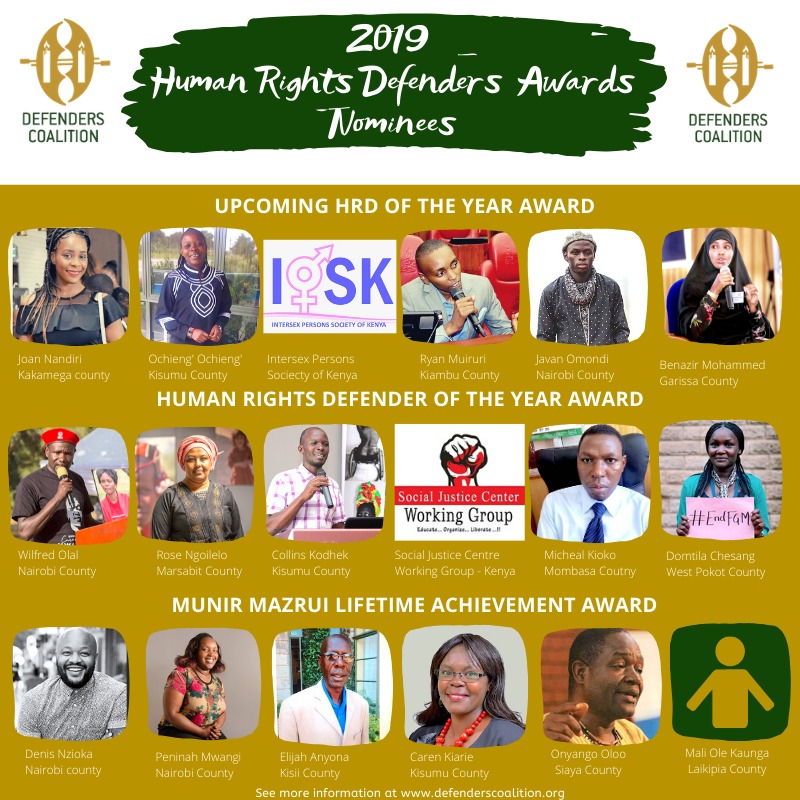The Centre for Applied Human Rights at the University of York is opening a new Call for Nominations for the Protective Fellowship Scheme for Human Rights Defenders at Risk. The Centre is looking for up to five defenders who are expected to stay in York for 3-6 months. New Fellows are expected to start in York on 15 September 2020. Nominations for female human rights defenders are particularly welcome.
The Centre for Applied Human Rights in York provides human rights defenders at risk with an opportunity to enhance their research skills and share their expertise with other human rights defenders, academics and students. During their stay they will work on a research project related to their work in their home country/region and attend human rights courses taught at the Centre. The Fellows will be supervised by Centre staff in their research projects. For specific information on eligibility criteria and an overview of the Scheme, please see attached documentation.
Nominations are accepted from recognised civil society organisations and/or organisations working specifically with human rights defenders. Organisations may nominate up to two defenders. Organisations may not nominate their own employees.
To nominate a human rights defender for the Protective Fellowship Scheme, please visit http://www.york.ac.uk/cahr
Palais des Nations, Geneva
Situation of Human Rights Defenders in Kenya
10th December 2019
On behalf of the Defenders Coalition, which is the National Coalition of Human Rights Defenders in Kenya, I thank the Organizers of this Pre-session for this opportunity to raise some of the key human rights defenders concerns from Kenya.
During its second UPR cycle, the Government of Kenya received 11 recommendations related to HRDs, including CSOs and one on peaceful assembly. We are particularly concerned that the legitimate role of protection and promotion of human rights carried on by human rights defenders and Civil Society Organizations is criminalized and target for reprisal by both state and non-state actors. One particular concern and a challenge for us, is the extended use of surveillance by both state and non-state actors, targeting HRD because of the nature of their work, facilitating other abuses of human rights and limiting the freedom to conduct their activities.
The Defenders Coalition has noted the following challenges since Kenya’s 2nd UPR cycle:
Violations of Freedom of Peaceful Assembly; Human Rights Defenders more than often use demonstrations as a form of expression. However, state officials have routinely denied or prohibited peaceful assemblies through banning of scheduled protests, arrests of protesters and use of excessive force on protestors resulting to injuries and deaths. During its second UPR review, Kenya accepted one recommendation “to […] guarantee peaceful assembly of journalists, activists and participants in demonstrations.” Article 37 of the Constitution protects the right “peaceably and unarmed, to assemble, to demonstrate, to picket, and to present petitions to public authorities.” However, as evidenced below, the government has failed to realise this recommendation adequately. In the month of September 2019 alone, 43 people were arrested in the course of protests.
Threats to Freedom of Association: the government continues to interfere in the operations of NGOs. On 16 August 2017, the Kenya Revenue Authority (KRA), accompanied by Kenyan police officers, attempted to enter the offices of the Africa Centre for Open Governance (AfriCOG) without notice and with a defective search warrant. The attempted raid came two days after AfriCOG, together with the Kenya Human Rights Commission (KHRC), were served with a notice of deregistration by the NGO Coordination Board.
Harassment, intimidation, and attacks against human rights defenders, civil society activists.
Since the last UPR review, the Government has partially implemented the recommendations it accepted to implement. Other than public pronouncements by the investigative agencies (Office of the Director of Public Prosecutions and Director of Criminal Investigations) at human rights forums, the government has not intensified its efforts to ensure decriminalization of HRDs and recognition of their work. On 22 June 2018, the office of the Director of Public Prosecutions, through a letter to the Director of Criminal Investigations and Witness Protection Agency, requested the protection of HRDs advocating against lead poisoning in the Owino Uhuru slums (Mombasa).
In light of these updates and observations, we urge the Government of Kenya to:
Delivered by Francis Ndegwa, Communications Officer, Defenders Coalition
Seasons greetings to you!
On behalf of Defenders Coalition team and the Human rights defenders in Kenya I would like to thank you for your unwavering support during the year.
You have been party of our success journey to reach out and offer support to human rights champions whenever they were at risk. You also embraced our 2019 signature campaign for sustainability and building awareness on human rights defending .
The #ClimbForJustice Campaign successfully celebrated human rights defenders as true heroes at Mashujaa Day Concert. We are also pleased that you were part of our successful efforts to Summit Mt. Kenya’s Lenana peak on Jamhuri Day for the Justice cause and raise funds to set up a human rights centre to more sustainably continue touching the lives of thousands of HRDs throughout Kenya that Defend rights at great risk.
We hope we can continue to count on your exceptional support in raising Ksh. 50 million target we need to champion the rights of all human rights defenders and set up a home to advance human rights. We have so managed to raise 10% of this target.
We wish you a relaxing, safe and wonderful holiday season, merry Christmas (to my Christian brothers and sisters) and happy new year.
Thank you
Kamau Ngugi on behalf of Defenders Coalition Team
The office of the Director of Public Prosecution (DPP) will next week set up a special fund through which billions of shillings amassed through corruption will be collected and returned to the public.
Director of Public Prosecution Noordin Haji said on Friday that his office will create the fund on Monday to ensure proceeds of graft are reclaimed and returned to society
“On Monday, we will conclude setting up of Prosecution Fund that will collect all monies that have been recovered from corruption,” Mr Haji told the media at Old Moses Camp at the base of Mt Kenya.
“We realised that the scourge of corruption and impunity is actually hindering our realisation of Chapter 4 of the Constitution, on the Bill of Rights.”
RIGHTS VIOLATIONS
The DPP also welcomed back a group of human rights activists who scaled Mt Kenya in a bid to create awareness on victims of rights violations.
He said part of the monies recovered from corruption deals will help the group set up a wellness and training center for human rights defenders in Nairobi.
Amnesty International’s Executive Director for Kenya, Mr Houghton Irungu said, “We must put an end to corruption and impunity to ensure every Kenyan has a right to dignity and safety, regardless of where they come from.”
Kamau Ngugi, Coalition for Human Rights Defenders Executive Director, said they climbed Africa’s second highest mountain to highlight the plight of human rights activists and the need for government organs to protect them against violation of their freedom of expression.
“Our key goal is not only to conquer the mountain but to also raise awareness about social injustices and raise money to construct a center for human rights defenders next year.”
Read the Full Story By Daily Nation Here:https://www.nation.co.ke/news/DPP-Haji-sets-up-Prosecution-Fund/1056-5384288-ljf3tp/index.html
COMMUNIQUE ON RESOLUTIONS OF WOMEN HUMAN RIGHTS DEFENDERS, NGONG HILLS HOTEL, ON THIS DAY, 29TH NOVEMBER 2019, INTERNATIONAL WOMEN HUMAN RIGHTS DAY
We, the women leaders of Kenya,
Noting that the Constitution of Kenya guarantees equality of men and women and prohibits any forms of discrimination;
Honouring those women who have struggled in the fight for human rights for all; gender equality and equity;
Cognizant of the vital role that women play in democracy and governance;
Acknowledging that women constitute over half of the population of this country;
Emphasizing our commitment to the eradication of all forms of discrimination against women in Kenya;
Committed to nurturing and protecting the hard won fundamental rights and freedoms that guarantee womens’ full and equal participation in the political, economic, cultural and social spheres;
Exercising our sovereign and inalienable rights to fully participate in the governance and development of this country,
Do hereby make the following resolutions:
SIGNED BY 200 WOMEN LEADERS LEADERS AND WOMEN HUMAN RIGHTS DEFENDERS, DRAWN FROM ALL THE 47 COUNTIES OF KENYA GATHERED AT NGONG HILLS HOTEL TO CELEBRATE THE FOR THE INTERNATIONAL WOMEN HUMAN RIGHTS DEFENDERS AND COMMEMORATE THE INTERNATIONAL 16 DAYS OF ACTIVISM
30 November 2019 – Nairobi, Kenya.
The Defenders Coalition (National Coalition of Human Rights Defenders in Kenya) and the Working Group on Human Rights Defenders announced today the winners of the 2019 Human Rights Defenders awards during a ceremony held in Nairobi at the Residence of the French Ambassador.
The 2019 winners are:
Human Rights Defender of the Year: Wilfred Olal and Social Justice Centres Working Group
Upcoming Human Rights Defender of the Year: Benazir Mohammed and Intersex Persons Society of Kenya
Munir Mazrui Lifetime achievement: Denis Nzioka, Peninah Mwangi and the Late Onyango Oloo.
For the fourth consecutive year, and chosen by an independent selection panel of eminent Kenyans, chaired by Dr Willy Mutunga, the three different awards were handed out to the winners for their outstanding work in the field of human rights. Some of the selection criteria included civil courage, leadership, innovation, demonstrable impact of the Human Rights Defender’s work on the community, and creativity.
“In every community, there are individuals who stand out. They defend human rights, and they do so at times under very extraordinary circumstances,” says Kamau Ngugi, Executive Director of the Defenders Coalition. “The good bit is that their work is appreciated by the society but their work is only known to the communities around them and the areas they have had an impact across the world. The awards ceremony is a special occasion to honour those courageous individuals who do excellent work within our communities.”
The objective of the Awards ceremony is to honor the extraordinary work of Human Rights Defenders in the protection of human rights while they face many challenges in their capacity of agents of social change and transformation. An important aim of the awards is to improve the safety and protection of Human Rights Defenders as they benefit from the visibility and international recognition.
The Awards ceremony is an initiative of the Human Rights Defenders Working Group, currently presided by the Defenders Coalition and co- chaired by Belgium Embassy in Nairobi. The Working Group brings together civil society organizations, activists and development partners to pursue the universal goal of protecting human rights and the defenders of these rights.
For more information, or interview requests, please contact:
Mr. Francis Ndegwa, Communications Officer, Defenders Coalition, 0705 692 347 francis@hrdcoalition.org
Notes to the Editors:
Further details on the 2019 Winners:
Human Rights Defender of the Year: Wilfred Olal and Social Justice Centres Working Group
Wilfred Olal
Wilfred is the coordinator of Dandora Community Justice Center and the Convener of the Social Justice Centers Working Group. He is a husband and a father of three kids. Apart from being a Human rights defender, he is a farmer and businessman in the supplies industry.
Olal started his Human rights work in 2005 by joining The Bunge la Mwananchi social movement as a member and rose to the position of the National Coordinator, where they advocated for the expansion of the civic space and a campaign on the right to protest against corruption and Impunity.
In 2014, he joined hands with other HRDs and came up with the idea of setting up social justice centres to advocate for social justice and Human rights in the informal areas of Nairobi. They started with Mathare social justice Centre, and later Dandora community justice Centre. The centres have since grown up to outside Nairobi and in September 2019, Rubaga social justice centres was launched in Kampala.
Social Justice Centres Working Group
The Social Justice Centres Working Group (SJCWG) is a consortium of 28 justice centres mainly based in Nairobi, Kisumu and Mombasa’s informal settlement. Collectively, the justice centres are a movement advocating for the realization of social justice within some of Kenya’s most marginalized communities. The SJCWG advocates and fights for the promotion of human rights in all spheres of their respective communities through documentation, monitoring, reporting of cases of Human Rights violations and holding of community dialogues within their areas of advocacy.
Upcoming Human Rights Defender of the Year: Benazir Mohammed and Intersex Persons Society of Kenya
Benazir Mohammed
Benazir is a an FGM survivor and Anti-FGM crusader from Garissa. She is a founder and has been working as the director of Silver Lining Kenya (SLK) for the last 3 years. Through this initiative, Benazir and her team advocate for the rights of young girls especially on education, reproductive health and ending different forms of GBV.
Other than being a HRD, she recently started a social enterprise called Pendo Africa Industries based in Garissa that makes re-usable sanitary towels, creating employment for local women and youth. Benazir’s human rights work is inspired by the young girls she mentors, who now can advocate for their rights and encourage other girls to speak out.
Intersex Persons Society of Kenya
IPSK is an initiative that started in Nairobi county on November 2016 to provide support and creating awareness as well as gathering data to establish the identifiable presence of intersex persons in Kenya, the identifiable presence of practice or beliefs that the human rights, dignity ,or lives of all such persons. IPSK works to develop tools and information suitable for advocacy, to be used in awareness campaigns towards an open, tolerant, and enabling society of intersex persons and their families. We also work towards the protection of dignity and elimination of human rights violations of intersex persons.
Munir Mazrui Lifetime achievement Award: Denis Nzioka, Peninah Mwangi and the Late Onyango OlooDenis Nzioka
Denis Nzioka is a Kenyan based LGBTIQ and sex workers rights activist. He is also a book author/publisher, trained journalist and parent. Currently, he volunteers his skills to build, and support African LGBTI and sex worker led movements in media, and online platforms and creating community resource portal for sexual and gender minorities. He is not just familiar with health and rights promotion for sexual and gender minorities, but one that lives the work and already has established and trusting contacts in the movements.
He was also the first to report on sex work organizing via the Denis Nzioka News Agency, something that earned him the Sauti Journalism Award for honest, balanced reporting, given by KESWA at the inaugural Kenya Sex Workers Awards. Denis has been a wonderful resource, peer mentor and close friend.
Peninah Mwangi
Peninah is a mother of one son and a guardian to 5 children, the eldest being18 years. All of them are children of sex workers. She began her human rights work more than 20 years ago. After college in 1998, she started to work as a bar hostess where learnt that violence including murder of women working in the bars or those doing sex work and based in the bars and brothels is not uncommon.
Together with other Bar Hostess and sex workers, they used to have sessions where they discussed horror stories of police who arrest and violate them, asking for sexual favors or jail for the girls. They agreed to form an organization to advocate for the rights of bar hostesses and sex workers. At the same time, HIV/IDS was at its peak in Kenya (national average of 33% prevalence) and was affecting sex workers and bar hostesses the most. In some bars they lost all the bar hostesses, there was a lot of stigma and panic in the bars.
Onyango Oloo
Onyango Oloo stood tall as a social justice and political activist amongst his peers of liberal democratic critics of the 1990s. He was well known in the community of activists, and after a stint in exile, Onyango Oloo worked mainly as an online activist, blogging and writing on various themes on political reforms in the country. In this characterization, I got to know the works of Onyango Oloo for almost 8 years. Onyango Oloo lived in life as a thorough going ideologue in neither want for material satisfaction nor the pleasure of keeping friends that he disagreed with. For good or for bad, he was very steadfast and principled.
Public Choice Award: Domtila Chesang
Domtila is a trained high school teacher, was born and raised up in the slopes of West Pokot county. She founded I Rep Foundation (I Am Responsible Foundation), a community-based organization which senstizies and carries out community empowerment campaigns. The campaigns are geared towards empowering the community with knowledge and information on negative effects of harmful cultural practices like Female Genital Mutilation and child marriages. She is an FGM survivor who took a stand against the vice despite being branded a coward. She is a full-time human rights defender.
She has successfully managed to directly and indirectly prevent and protect girls from falling victims of violence through a number of interventions and by working with other stakeholders. Domtila also rescues girls and host them temporarily, enroll them in her former boarding school which rescued and hosted her when she run away from home. She partners with them to mobilize resources, scholarships and food.
The 2019 Human Rights Defenders Award ceremony was hosted by the French Embassy in Nairobi, with the generous support of: Belgium Embassy, Netherlands Embassy, Germany Embassy, Haki Africa and Embassy of Sweden in Nairobi.
Human Rights Defenders continue to work to promote individual human rights. Many at times, this work presents risks to the defenders as they lack support and face many threats while at work.
Each year Kenya joins the rest of the world to commemorate International Human Rights Days like the International Women Human Rights Day on 29th November and the International Human Rights Defenders Day on 14th December.
This year during the week leading up to the International Human Rights Day, Defenders Coalition hosted a one week forum to bring together 110 Human Rights
Defenders (HRDs) country wide in an intensive Academy to be trained on matters of Security Management, Monitoring Documentation and Reporting of Human Rights and their Socio Economic well-being.
During the International Women Human Rights Day, an additional 100 women leaders joined Defenders Coalition to celebrate and pay tribute to women who have lost their lives while advocating and championing for social justice and women empowerment. Defenders Coalition strongly encourages CSOs, and the government to work with Human Rights Defenders because they help to advance civic space, rights and freedoms.
It is a concern that as women human rights defenders continue to stand up for human rights, they face obstacles including systematic discrimination, stigmatization, assault, threats, and violence and inequality within their communities as well as eventual exclusion from resources and power or even worse they lose their lives. In 2017, Eva Ayiera Maina a WHRD mysteriously passed on in her house. Esther Mwikali another WHRD was found dead on 28th August 2018 after a forced disappearance, and Carol Mwatha a vocal human rights activist from Dandora Community Justice Centre was also found dead in 2019 under unclear circumstances.
Defenders Coalition strongly condemns the continued threats and deaths directed at the Women Defenders as they advocate for their own rights and those at the margins of the society. We encourage the government and judiciary to conduct their duty of protecting and upholding human rights and ensuring justice prevails for all victims of human rights violations.
The third edition of #ClimbForJustice preparation hikes –Elephant Hill in Aberdares was successfully completed on Saturday, 16 November 2019.
The campaign attracted a record 94 climbers who reached different stages on the hill. The youngest climber was 8 years old and made it up to The Tail End part of he Hill.
Elephant Hill was the last pre-hike ahead of climbing Mount Kenya between December 7-12 where 55 climbers will ascend Lenana Peak to raise funds for setting up of a wellness, creativity and training centre for HRDs on Kenya.
Click Here if you want to join us in the Mount Kenya expedition in December.

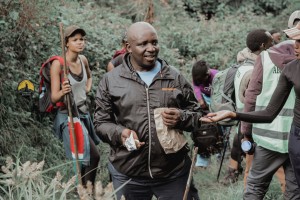



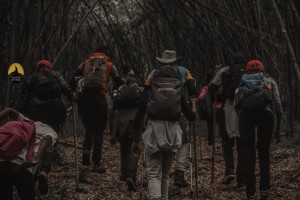

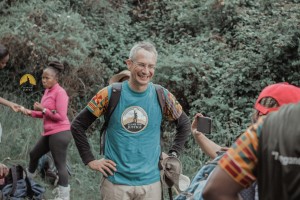


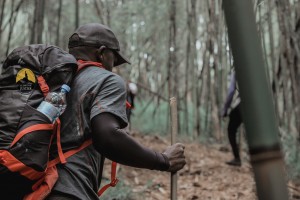


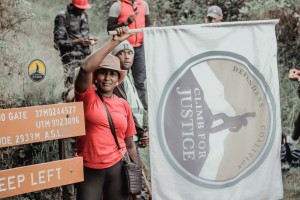


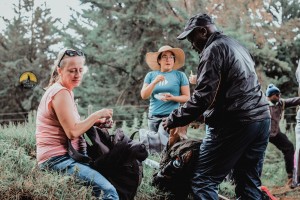

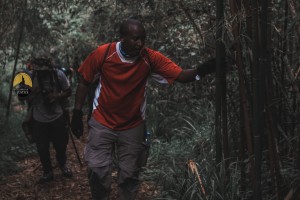
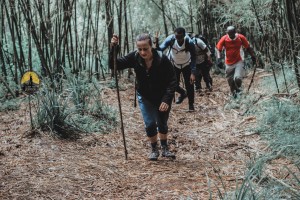
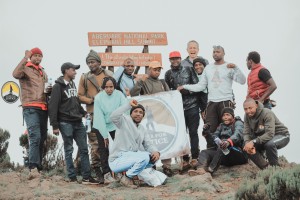

Dear President Emmanuel Macron,
We, the intellectuals, writers, and human rights lawyers undersigned, write to implore France to strengthen its commitment to the resolution of the Anglophone crisis in Cameroon, described by some analysts as “Rwanda in slow motion”.
Specifically, we respectfully urge France to use its considerable influence on the government of President Paul Biya to encourage Cameroon to openly join the peace talks led by Switzerland, which would make it possible to stop the murders and atrocities perpetrated in the country. North West and South West regions of the country. A durable solution must come from a mediation process that includes English-speaking armed separatist groups and non-violent civil society leaders.
It’s urgent; the dehumanizing violence in Cameroon must not reach the same scale as that which occurred in Rwanda in 1994. On the one hand, non-state armed groups and bandits use machetes to maim, torture and decapitate, on the other hand. Government forces commit crimes against humanity such as extrajudicial executions and burnt villages. Journalists, opposition politicians and other civilians are wrongly detained. More than half a million Anglophones are displaced while fleeing violence. Hundreds of thousands of children have missed school for more than three years, and according to recent United Nations reports, 1.4 million people are at risk of starvation.
France and the international community may be aware that the recent Grand National Dialogue organized by Cameroon did not adequately address the Anglophone crisis. As a result, violence has persisted in English-speaking areas since the end of the dialogue on October 4.
The Great National Dialogue and the release of political prisoners have been a step in the right direction. However, the dialogue does not address the root causes of the conflict; it excluded any discussion of other forms of governance and did not offer sufficient security guarantees to diaspora and separatist leaders. In other words, it did not put an end to the atrocities or produced an acceptable or viable political solution for the English-speaking regions. The talks led by Switzerland now seem to be the only way to reach an appropriate political solution, through an inclusive negotiating table.
Read the Full story here: https://ewn.co.za/2019/11/18/open-letter-to-president-macron-on-human-rights-abuses-in-cameroon
On 15th May 2019, Defenders Coalition in conjunction with the EU Working Group on Human Rights Defenders sent out a call for nominations for HRD Awards 2019 that run until the 15th July 2019. Out of the 44 nominations received, 18 nominees were shortlisted for the three categories as follows:
The HRDs represent 10 thematic areas which include:
The nominees come from diverse thematic areas and also geographical locations. The nominees are drawn from 11 counties that include: Kisii, Laikipia, Mombasa, Garissa, Marsabit, Nairobi, Kisumu, Kakamega, Kiambu, West Pokot and Siaya Counties. See the nominees below:
